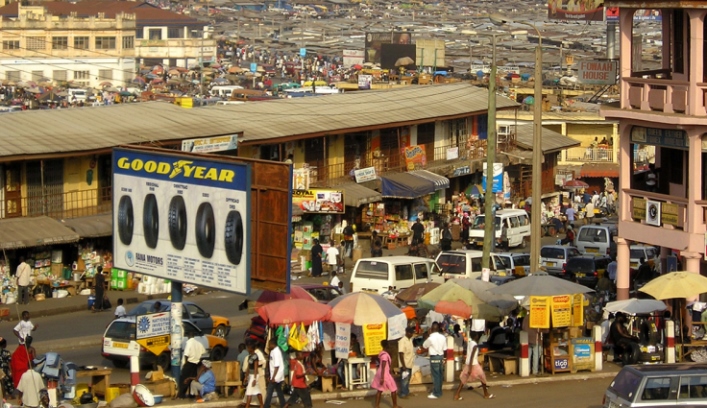Nigerian-Ghanaian Relations Marred By Attacks on Nigerian Traders

Reports and clips of shops owned by Nigerian traders being closed in Ghana, among other issues, has put the relationship between West Africa’s two pillars in a difficult situation.
After Nigerians raised the alarm over the closure of the shops in July, the President of Nigerian Traders Union in Ghana, Chukwuemeka Nnaji, said the shops were locked by the Ghanaian authorities after they demanded evidence of registration from Ghana Investment Promotion Council (GIPC).
The Nigerian traders had allegedly failed to have the one million dollars equity stipulated by GIPC.
Nnaji called for the Nigerian government’s intervention on the matter.
Last week, Nigeria’s Minister of Foreign Affairs, Geoffrey Onyeama, held talks with the Charge d’Affaires of Ghana to Nigeria, Ms Iva Denoo, on the forcible closure of the stops in order to resolve the matter.
He also met with a delegation from Nigerian traders in Ghana, who were led by their President, Mr. Jasper Emenike.
Emenike said that this was not the case of Ghanaians trading in Nigeria, where they enjoyed ease of doing business without harassment.
“The Nigerian government needs to deescalate the ongoing tensions to avoid people being killed in the process,” he said.
This also comes barely two months after armed men broke into the Nigerian High Commission in Ghana and demolished a building that was under construction, an incident for which the government of Ghana later apologized.
Over the years, Nigeria and Ghana have enjoyed excellent relationship, although cases of discrimination in the country have been occurring more often.
According to former High Commissioner of Ghana to Nigeria, Rashid Bawa, there are around seven million Nigerians living in the West African country by 2019.
The Nigerian government is now considering taking a stance by taking the Ghanaian authorities to the community Court of Justice of the Economic Community of West African States (ECOWAS) in order for a long standing solution to the recurring issue, but only after all facts of the situation had been established.
Most of this is due to the misinterpretation of laws and the ECOWAS protocol. While there is the freedom of movement of persons and goods under the ECOWAS treaty, the law differs where it comes to settling in a different country with the intention of establishing a business.
According to the Head of Communications in the Ghanaian trade ministry, Boakye Boateng, the traders who suffered this plight had previously been pardoned by President Nana Akufo-Addo and given a one year notice to get their registration in order.
“If you recall as far back as December last year, these shops were locked, the president intervened and we asked that the shops be reopened because the very law that gives GUTA the right to be the sole traders in our market, that same law requires that a certain group of people are those who can go and do law enforcement and not you, so allow us to do our work.
“Since then, we have given them an opportunity to regularise the document and submit it to us for verification, that has not been done. We went there, we inspected the shops and we gave them notices that in 14 days, they should ensure that all their necessary documentation is complete. These people have been served notices for over a year now,” Boateng said.
The situation has gone as far as insinuations of xenophobia being mentioned.
In September, 2019, xenophobic attacks were launched against Nigerians in South Africa, with shops owned by Nigerians shut, and 12 people killed, prompting an evacuation flight from Johannesburg to return them home.
Similarly, in Accra, Ghana in June, 2019, attacks of the same nature were also targeted at Nigerians, with some even being deported back to the country.
Support Our Journalism
There are millions of ordinary people affected by conflict in Africa whose stories are missing in the mainstream media. HumAngle is determined to tell those challenging and under-reported stories, hoping that the people impacted by these conflicts will find the safety and security they deserve.
To ensure that we continue to provide public service coverage, we have a small favour to ask you. We want you to be part of our journalistic endeavour by contributing a token to us.
Your donation will further promote a robust, free, and independent media.
Donate HereStay Closer To The Stories That Matter




